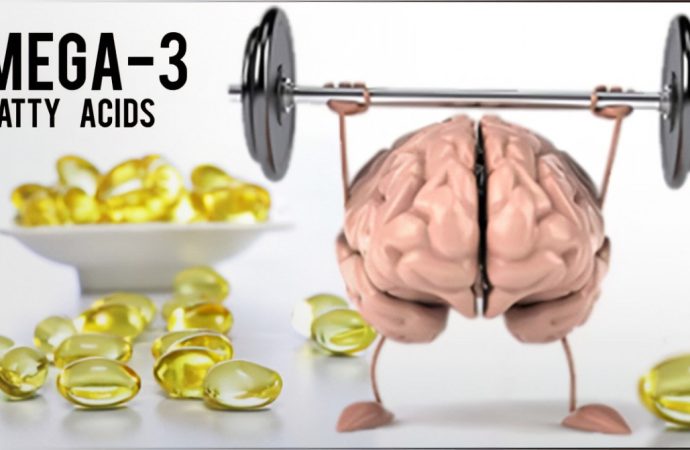Introduction The health of our brain is central to our well-being. For those interested in nurturing cognitive function, memory, and mental well-being, Omega-3 fatty acids emerge as valuable allies. These essential fats, known for their many health benefits, play a profound role in brain health. In this article, we’ll explore how Omega-3s impact the brain,
Introduction
The health of our brain is central to our well-being. For those interested in nurturing cognitive function, memory, and mental well-being, Omega-3 fatty acids emerge as valuable allies. These essential fats, known for their many health benefits, play a profound role in brain health. In this article, we’ll explore how Omega-3s impact the brain, support cognitive function, and contribute to overall mental well-being.
1. Omega-3s and Brain Health
Omega-3 fatty acids are renowned for their structural role in the brain. Docosahexaenoic acid (DHA), one of the primary Omega-3s, is a major component of brain cell membranes. This makes it essential for maintaining the structure and function of brain cells.

Image By:https://th.bing.com/
2. Cognitive Function and Memory
Omega-3s have a significant influence on cognitive function and memory. Studies suggest that higher Omega-3 intake is associated with improved cognitive performance, including better attention, problem-solving skills, and memory.
3. Brain Development
DHA is particularly critical during brain development. It is necessary for fetal brain growth, and it continues to support cognitive development in infants and children. Expectant mothers and parents can optimize their child’s cognitive potential by ensuring adequate Omega-3 intake.
4. Reducing Cognitive Decline
Aging is often accompanied by cognitive decline. Omega-3s can help mitigate this decline by promoting brain health and maintaining cognitive function as we age. They may even reduce the risk of neurodegenerative conditions like Alzheimer’s disease.
5. Mood and Mental Well-being
Mental well-being is closely tied to brain health. Omega-3s, especially eicosapentaenoic acid (EPA), have been associated with mood regulation and reducing the risk of depression and anxiety. These essential fats can contribute to an overall sense of mental balance and well-being.
6. Brain Inflammation
Inflammation in the brain is associated with various neurological conditions. Omega-3s possess anti-inflammatory properties that can help reduce brain inflammation, potentially lowering the risk of conditions like multiple sclerosis and Parkinson’s disease.
7. Sources of Omega-3s for Brain Health
To harness the brain-boosting benefits of Omega-3s, you can turn to specific dietary sources. Fatty fish like salmon, mackerel, and sardines are excellent options. For vegetarians and vegans, plant-based sources like flaxseeds, chia seeds, and walnuts offer alpha-linolenic acid (ALA), a precursor to DHA and EPA. Omega-3 supplements, such as fish oil and algal oil, are also available for those seeking additional support.
8. Achieving the Right Balance
Balancing Omega-3 and Omega-6 fatty acids is essential for optimal brain health. While Omega-3s have anti-inflammatory properties, Omega-6s can promote inflammation. Maintaining a healthy ratio between these two types of fats is vital for cognitive function and mental well-being.
9. Consideration for Mental Health
When addressing mental health concerns, including depression and anxiety, consulting with healthcare professionals is essential. They can provide personalized guidance on incorporating Omega-3s into a mental health plan and ensure that these essential fats complement other forms of treatment.

Image by: https://plantbasedhealthprofessionals.com/
Conclusion
The profound impact of Omega-3 fatty acids on brain health, cognitive function, and mental well-being cannot be overstated. These essential fats play a pivotal role in maintaining the structure and function of brain cells, enhancing cognitive performance, and promoting mood regulation. By incorporating Omega-3-rich foods into your diet or considering high-quality supplements, you can nurture your brain and mental well-being, optimizing your cognitive potential and enjoying a more balanced and fulfilling life.

















Leave a Comment
Your email address will not be published. Required fields are marked with *